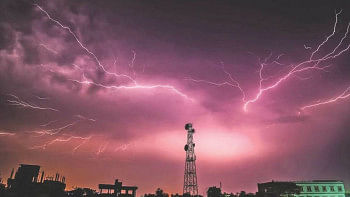Bangladeshi Women Writers
During the early half of the twentieth century, fiction writing by Muslim women in English remained somewhat of a rarity. Interestingly, among the very few exceptions the pioneer was a Bengali woman, Rokeya Sakhawat Hossain, who wrote her first story in English Sultana's Dream.
After Independence, the first generation of Bangladeshi women writers in English includes some poets. Razia Khan's poetry books Argus Under Anaesthesia and Cruel April bear the stamp of her supremacy in this genre. Another distinguished poet is Farida Majid who is also a deft literary translator. A collection of Bengali poems translated into English called Take Me Home, Rickshaw adds to her credit. Notable mention must be made of Niaz Zaman, English Professor of Dhaka University, who has edited an array of both local and foreign literary works. Her own publications include the prize-winning study A Divided Legacy: The Partition in Selected Novels of India, Pakistan and Bangladesh, The Crooked Neem Tree. Niaz Zaman has edited several anthologies, including Under the Krishnachura and From the Delta.
And now a diaspora of Bangladeshi women writers have emerged in the international stage with strong voices. Through their contributions they have taken Bangladeshi English writing to a new height. Let's have a look:
Bangladeshi-British author Monica Ali's Brick Lane has been much appreciated in both England and United States of America and was shortlisted for the Booker Prize in 2004. Its success brought renewed attention to Bangladeshi writing in English.
Then Tahmima Anam came into the scene with her debut novel A Golden Age, centered on the independence war of Bangladesh in 1971 which made her a winner of the 2008 Commonwealth Prize. She was nominated for the Man Asian Literary Prize for her second novel The Good Muslim.
In 2011, Ruby Zaman's Invisible Lines was published by Harper Collins. Powerful and evocative, this first novel explores the atrocities that went hand-in-hand with the liberation war of Bangladesh, the rebellion that created a country even as it tore its families apart.
Bangladeshi-Canadian writer Neamat Imam's first novel The Black Coat, a highly political novel, was published by Penguin Books India in 2013. The Black Coat is a controversial historical novel which presents a dark and dystopian portrait of Bangladesh under Prime Minister Sheikh Mujibur Rahman. The Sunday Guardian commented that it is 'destined to be a future classic' and will be used as the 'gold standard for any book which seeks to engage with south Asian politics or history.'
Shazia Omar, a social psychologist whose debut novel A Diamond in the Sky was published by Penguin India in 2009. It received praise for taking on the dark world of drugs and addressing the issue with frank sensitivity.
With her debut novel Hope in Technicolor, Srabonti Narmeen Ali approaches the dogmas that correlate life and our social expectations from it. The author gracefully weaves her story around the ironies found in Dhaka life.
Many have also brought out anthologies of short stories:
Munize Manzur's Voices is a collection of genuine stories of the layperson filled with narrative detail of scenes, senses and the sanctity of life. Sharbari Zohra Ahmed's The Ocean of Mrs. Nagai, set in different places tell us about love, displacement and the agonies of childhood. Farah Ghuznavi's Fragments of Riversong showcases a dozen stories that bring alive the beauty and chaos of contemporary Bangladesh. Among the poets, we have Sadaf Saaz Siddiqui's debut poetry collection Sari Reams and Rahnuma Ahmed's Tortured Truths, both published in 2013.
Every year with new women writers in the horizon, Bangladeshi English writing is poised to extend far beyond.
Marzia Rahman completed her MA in English Literature from the University of Dhaka. Her articles, translations and book reviews have been published nationwide.

 For all latest news, follow The Daily Star's Google News channel.
For all latest news, follow The Daily Star's Google News channel. 



Comments